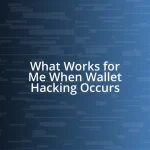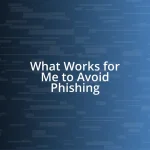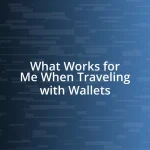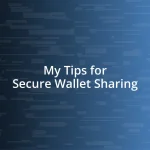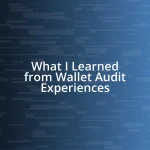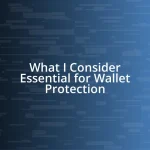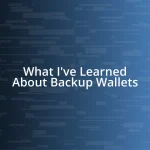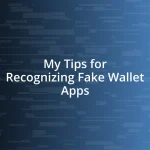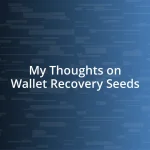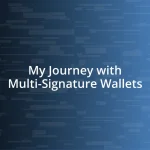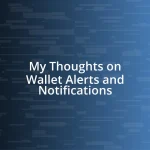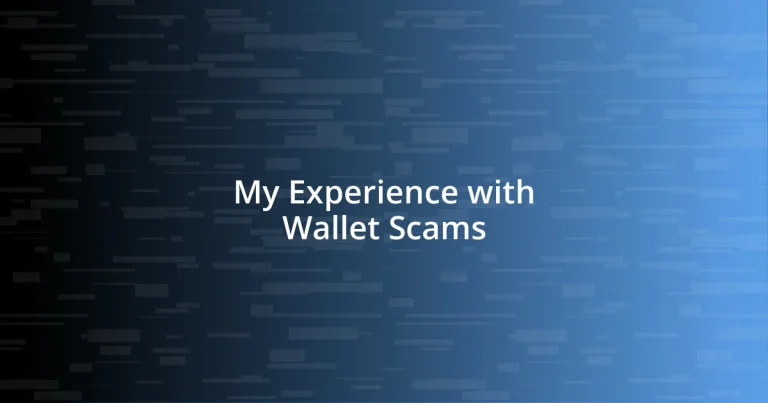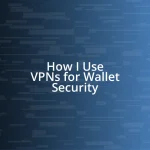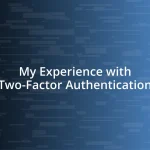Key takeaways:
- Recognizing warning signs of wallet scams, such as urgency, unrealistic offers, and unsolicited messages, is essential for safeguarding assets.
- Taking proactive measures, including using complex passwords, keeping software updated, and diversifying storage methods, significantly enhances wallet security.
- Reporting scams promptly to wallet providers and local authorities is crucial for asset recovery and preventing others from falling victim to similar scams.
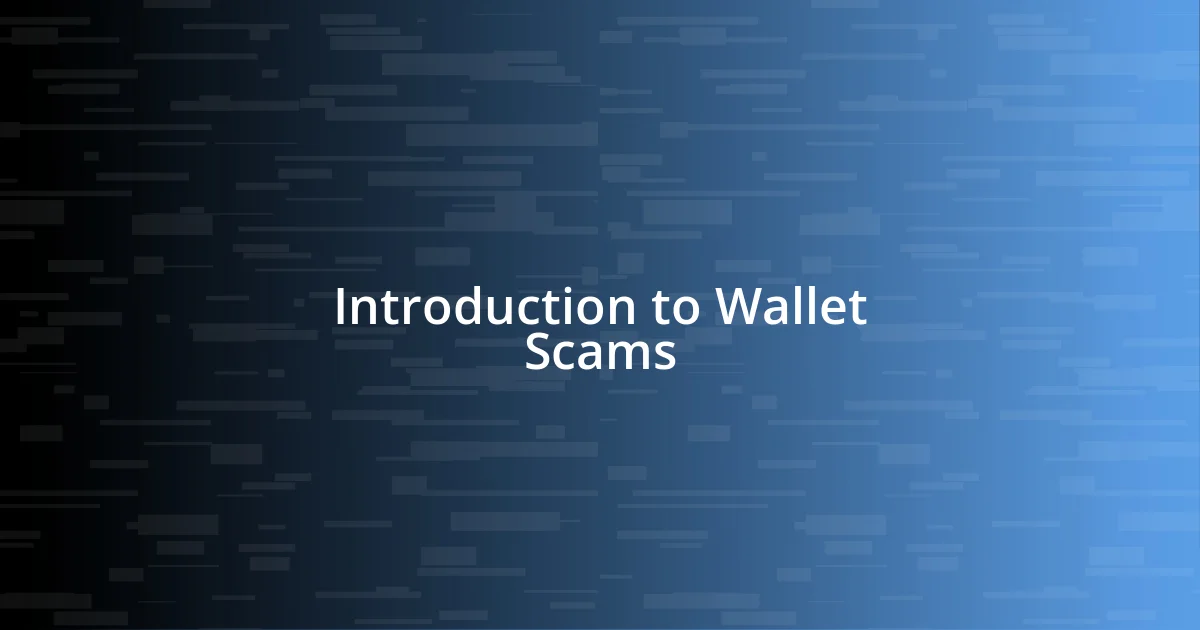
Introduction to Wallet Scams
Wallet scams have become increasingly prevalent, catching many unsuspecting users off guard. I still remember the sinking feeling I had when a friend shared their story of losing a significant amount of cryptocurrency in a matter of minutes. How is it possible that something as simple as a digital wallet could lead to such profound losses?
In my journey through the digital finance landscape, I often found myself wondering why people fall victim to these scams. Is it the allure of quick profits, or do they simply underestimate the sophistication of the scammers? It’s a sobering realization to understand that behind every wallet scam, there are skilled individuals exploiting trust and naivety, leaving devastation in their wake.
As we delve deeper into the world of wallet scams, it’s essential to recognize that they aren’t just technical issues; they take an emotional toll on victims. I’ve witnessed firsthand how losing even a small amount can lead to anxiety, guilt, and deeper financial consequences. Understanding these scams is critical—not just for protection but also to cultivate a sense of community and support for those who might be vulnerable.
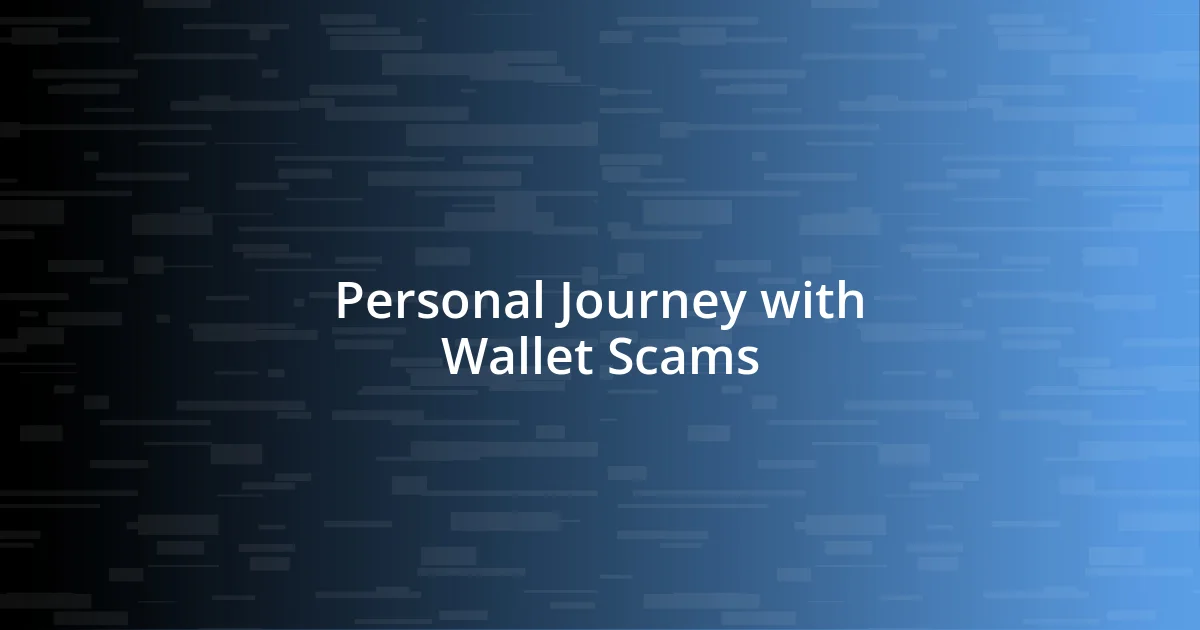
Personal Journey with Wallet Scams
As I navigated the world of crypto, I thought I was equipped with the necessary knowledge to avoid scams. But when I received a seemingly innocent message from an acquaintance, asking me to verify my wallet details for a giveaway, I hesitated. My gut told me something was off, but the thrill of potential rewards clouded my judgment. Fortunately, I decided to do some research first, which led me to the realization that many scams operate under the guise of friendly offers.
I cannot forget the day I almost fell for a phishing scam. I noticed a notification about a security issue with my wallet and, in a moment of panic, I clicked on the link and entered my information. Just as I hit “submit,” a chill ran down my spine. Thankfully, I had set up two-factor authentication and was able to secure my account. This experience drilled home the necessity of vigilance—one split second can lead to irreversible losses.
Reflecting on these events, I’ve learned that the emotional impact of such scams extends far beyond the financial aspects. It’s not just about the money; it’s about trust and the fear of being vulnerable in a digital age. I have felt the weight of anxiety after these close calls, a realization that the line between security and risk is so thin. Sharing my experiences, I hope to help others feel empowered in their own journeys through digital finance.
| Experience | Emotional Impact |
|---|---|
| Encountered phishing links | Panic and relief after securing account |
| Almost shared wallet details | Guilt and realization of naivety |
| Felt anxiety after close calls | Ongoing vigilance and trust issues |
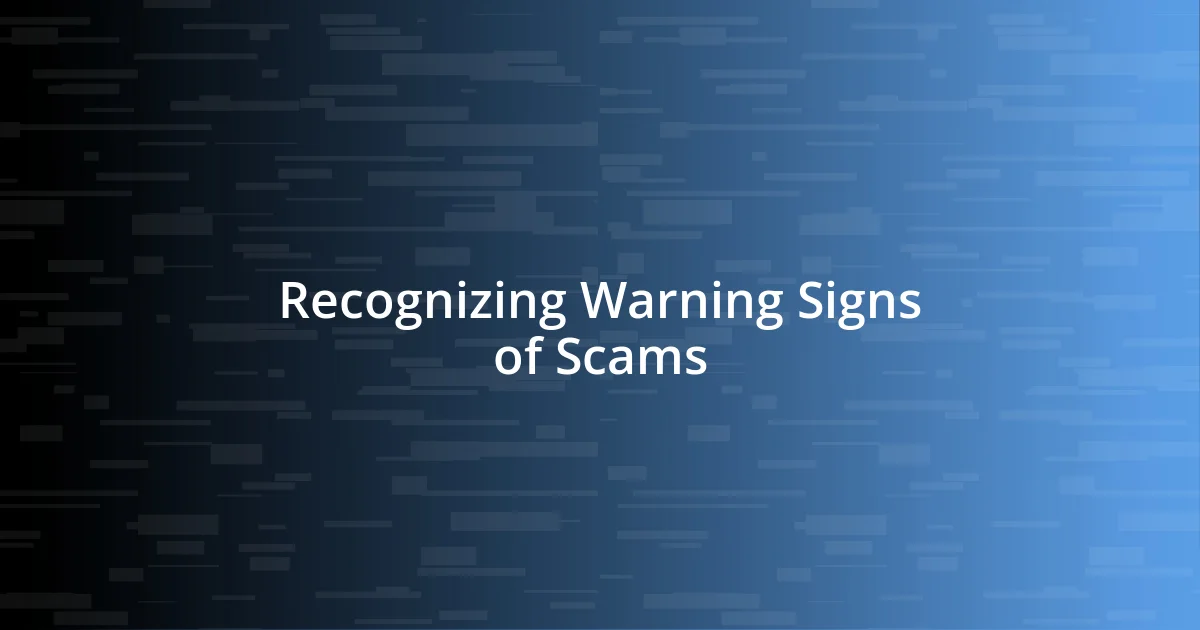
Recognizing Warning Signs of Scams
Recognizing the warning signs of wallet scams is crucial to safeguarding your assets. There’s often a nagging feeling that something is amiss, and I’ve learned to trust that instinct. Recently, I received a friend request from someone I thought I knew, but their profile seemed off. Instead of engaging, I took a step back. That cautious mindset saved me from potential fallout.
Here are some common warning signs to watch out for:
- Urgency: Scammers typically create a false sense of urgency, pressuring you to act quickly.
- Too good to be true offers: Be wary of promises for high returns or giveaways that seem unrealistic.
- Unsolicited messages: If you’re receiving unexpected communication, especially about your wallet, consider it a red flag.
- Look-alike websites: Always double-check URLs, as fraudulent sites often mimic legitimate ones closely.
- Requests for private information: Never share sensitive data like your wallet keys or passwords with anyone.
Every time I’ve ignored these signs, I’ve regretted it deeply. Like the time I got an email about an “urgent wallet update.” I hesitated but eventually clicked the link, only to find my account compromised moments later. It’s a lesson I won’t forget: stay vigilant and trust your gut.
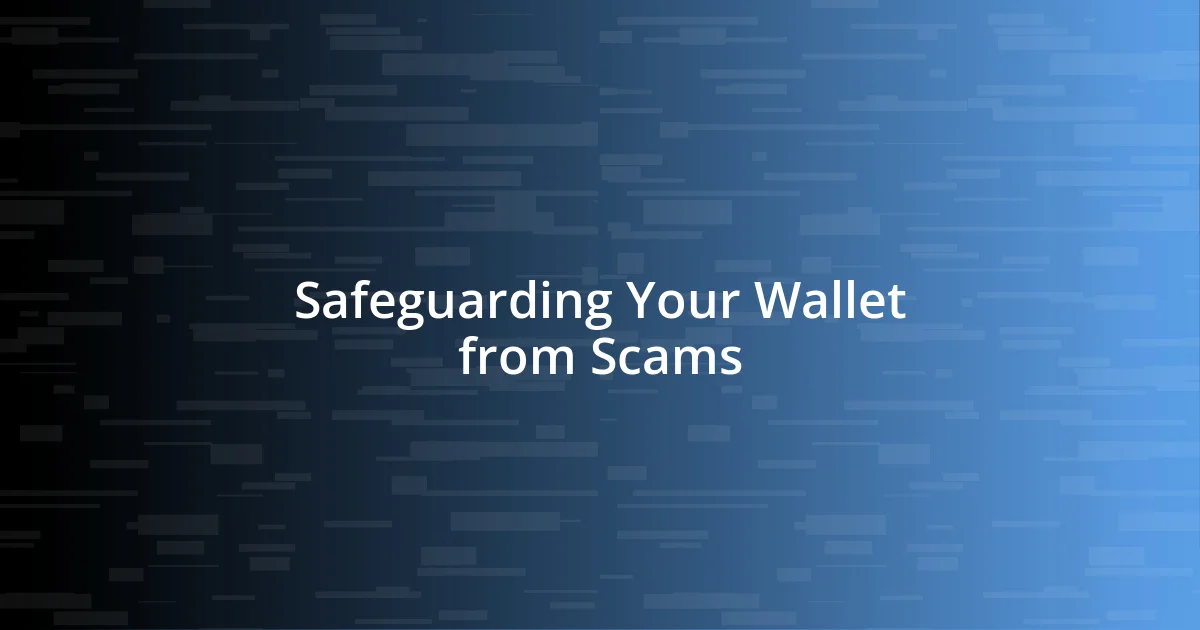
Safeguarding Your Wallet from Scams
It’s essential to take proactive measures to safeguard your wallet from scams. One tactic that has served me well is regularly updating my passwords. I remember the dread I felt when I learned about a data breach that affected many users. To buffer against potential threats, I switched to a password manager that generates complex passwords. How secure is your password? If it’s easy to remember, it’s likely easy for hackers to guess.
I also recommend keeping your software up to date. I once neglected an update, thinking, “What harm could it do?” Then I found out that the update contained vital security patches. The feeling of panic I experienced made me realize how important it is to trust the updates your wallet providers suggest. If you notice an update, take it seriously—it could be a game changer in protecting your assets.
Additionally, consider diversifying where you store your cryptocurrencies. Relying solely on hot wallets leaves you exposed to online threats. When I started using a cold wallet for long-term storage, it felt like a weight lifted off my shoulders. I could almost hear my past self sighing with relief! Balancing your assets between online and offline storage enhances your security while providing peace of mind. After all, wouldn’t you rather be proactive than reactive when it comes to safeguarding your financial future?
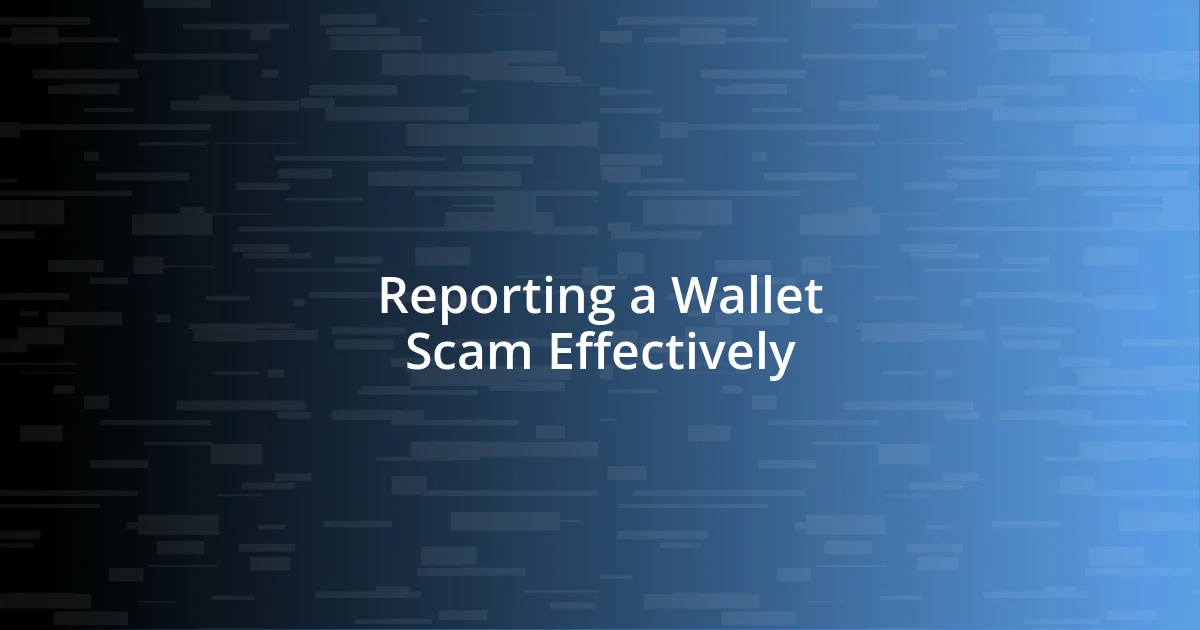
Reporting a Wallet Scam Effectively
Reporting a wallet scam effectively is crucial for not only reclaiming your own assets but also protecting others from falling victim. I vividly recall the day I realized I had been scammed. My heart raced as I prepared to report it. I learned that promptly reporting the incident to the wallet provider was essential, as they could freeze or track suspicious activities. Have you ever felt that surge of urgency when you know something needs to be done right now? Trust me, getting in touch with your wallet’s support team immediately can make a significant difference.
When filing a report, I found it helpful to gather all relevant information beforehand. This includes transaction IDs, screenshots of conversations, and any emails related to the scam. The more comprehensive the details, the better equipped the authorities are to assist you. It’s like piecing together a puzzle—each tidbit could lead to a bigger picture that helps in recovering funds. Have you ever wished you had everything ready when disaster struck? I certainly did when I was scrambling to provide detailed evidence of my situation.
Lastly, don’t skip reporting the scam to local law enforcement or platforms where the scam took place. Many people overlook this step, thinking it won’t lead to anything. However, I discovered that these reports help build a database of scams, assisting the authorities in tracking down trends and potential offenders. The more reports they get, the better chance they have of preventing future scams. So, have you thought about the impact your report might have? Trust me, your experience might just save someone else from the same fate you faced.
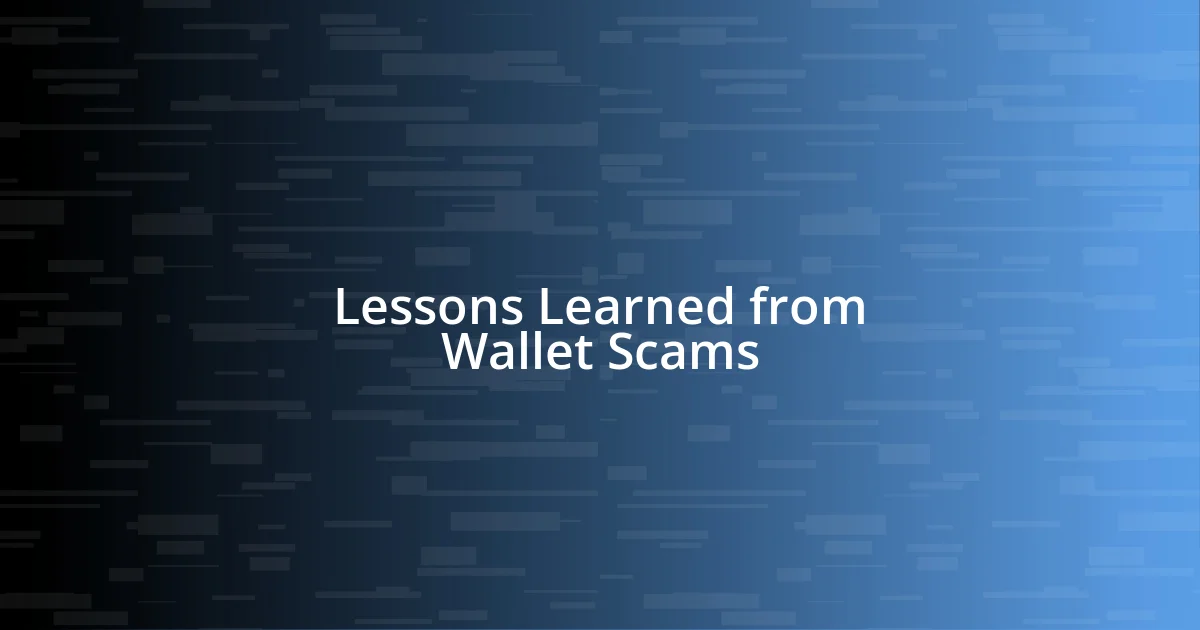
Lessons Learned from Wallet Scams
I’ve learned that vigilance is the best defense against wallet scams. There was a time when I received an unsolicited message promising a ‘once-in-a-lifetime’ investment opportunity. I remember the immediate rush of excitement, but a nagging feeling held me back. That moment taught me to trust my instincts and to question anything that seems too good to be true. Have you ever experienced that inner voice warning you? I’ve found it’s often worth listening to.
One key lesson is understanding the importance of verification. I recall a close friend sharing an enticing link that led him to a fake wallet site. His enthusiasm soon turned to despair as he realized he’d lost his cryptos in an instant. This incident drove home the necessity of double-checking URLs and scrutinizing sites before entering any sensitive information. When was the last time you double-checked something online? Taking that extra moment can save you from significant regret.
Finally, I learned that community knowledge is a powerful tool. When I joined crypto forums, I discovered that sharing experiences is incredibly valuable. I started to see trends in scams and warning signs. It’s like being part of a neighborhood watch, but for digital assets! Have you thought about tapping into community resources? I found immense relief and empowerment in learning from others’ experiences, and I believe it can fortify your defenses as well.
